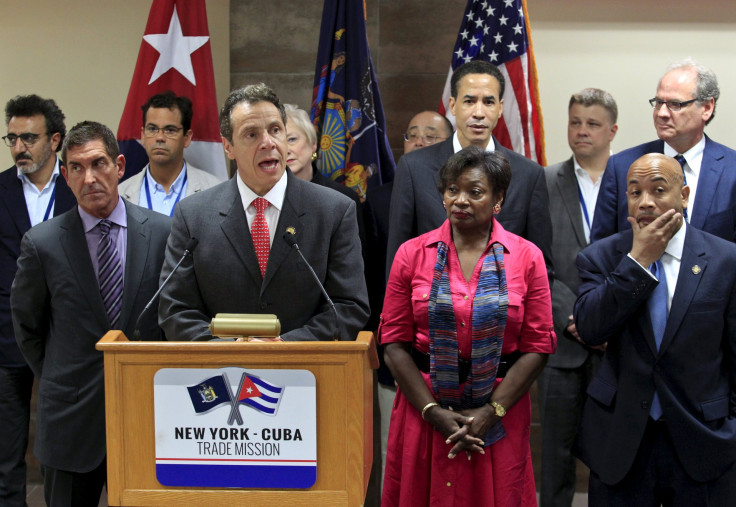Roswell Park Cancer Institute Joins Cuba In Developing Lung Cancer Vaccine

Despite longstanding political freezes between the United States and Cuba, scientists at Roswell Park Cancer Institute, in Buffalo, N.Y., have announced a partnership with Havana’s Center for Molecular Immunology in the search for a lung cancer vaccine.
A week and a half ago, President Barack Obama removed Cuba from the list of countries the United States observes as state sponsors of terrorism. The move widely signaled the beginning of the end to a decades-long tension between the U.S. and Cuba, and it got people talking about whether Obama would also lift the trade embargo preventing goods from changing hands. Vaccines, thankfully, do not fall into that category.
“There are exceptions when it relates to science and medicine,” Dr. Candace Johnson, president and CEO of Roswell Park and oncology professor at SUNY Buffalo, told Medical Daily. “This is really between us and the FDA.”
The vaccine, known as CIMAVAX, has already undergone rigorous testing in Cuba. It has shown success in reducing antibody responses in lung cancer patients and reducing future tumor growth. Without FDA approval, however, the drug won’t see a U.S. rollout. Scientists still need the authorization to perform clinical trials demonstrating the vaccine’s safety and effectiveness. Johnson says the plan is to get testing underway within eight months to a year, provided they can put together the more than 1,000-page investigational new drug (IND) application for the FDA’s review.
The team is hopeful, she says. “I don’t disagree this is unique, because it’s Cuba, and perhaps there may be more paperwork involved. But we don’t anticipate any difficulties. It’s just a matter of filing the right papers and doing the right things ahead of time before bringing it into the States.”
In Cuba, cancer is the second leading cause of death, behind only cardiovascular disease. The Ministry of Health, in recognizing the country’s efforts to ramp up its biotechnology capabilities, approved CIMAVAX in 2008 for the treatment of advanced lung cancer. Johnson, who recently returned from a two-day state foreign trade mission to Havana, alongside Gov. Andrew Cuomo, says the federal health agencies from Europe and Asia have already vetted the research; America is simply next in line.
Most of the time, lung cancer deaths are preventable. Data from the American Cancer Society, for example, reveal 87 percent of deaths in males and 70 percent of deaths in females are due to tobacco use. The rest come from some mixture of genetics, occupational hazards, and other unknown causes.
For people who already suffer from lung cancer, the survival rate is a little bleaker. Just over half of all patients make it past the five-year mark if their case is diagnosed while the tumors are still localized to the lungs. If the tumors branch out, the rate drops to just four percent. CIMAVAX may be able to get those rates back on the uptick, assuming the same advances made in Cuba can touch down on U.S. soil.
“Because of its lack of its toxicity, you could think of using this vaccine in more of a preventive manner,” Johnson said. That would happen in two possible ways. The first is preventing early-stage cancer from recurring after treatment, as these patients face a greater risk. The other is preventing high-risk people, who have not received a diagnosis, from ever developing it. Smokers, Johnson says, top the list.
These forecasts are years from real-world application, but their implications are worth considering. One such challenge is how to resolve the tension between creating a lung cancer vaccine and keeping the smoking rates low. The U.S. has made tremendous strides since the mid-1960s in eradicating cigarettes, but fears of cancer and disease serve as driving forces of that change. If scientists take them off the table, Johnson admits, there may be less incentive to quit.
“It’s a fine line,” she said of the public health dilemma. In conquering one major form of burden — lung cancer — researchers could unintentionally spark a new one. More important to her is keeping the rest of the world in mind. “Globally, there’s going to be a need even if we have great results here in this country in smoking cessation.”



























